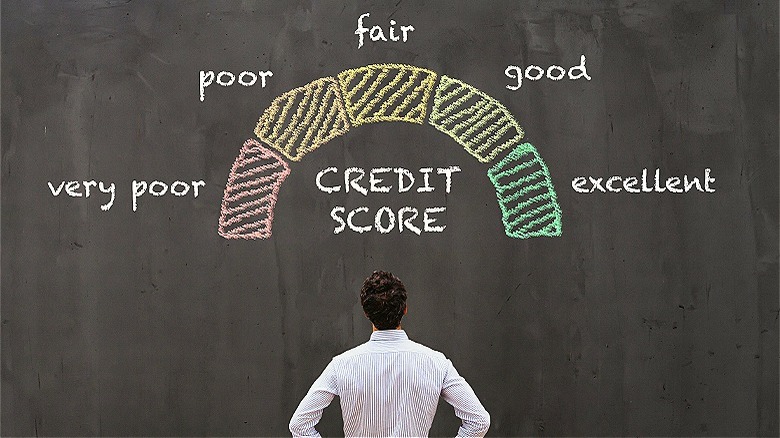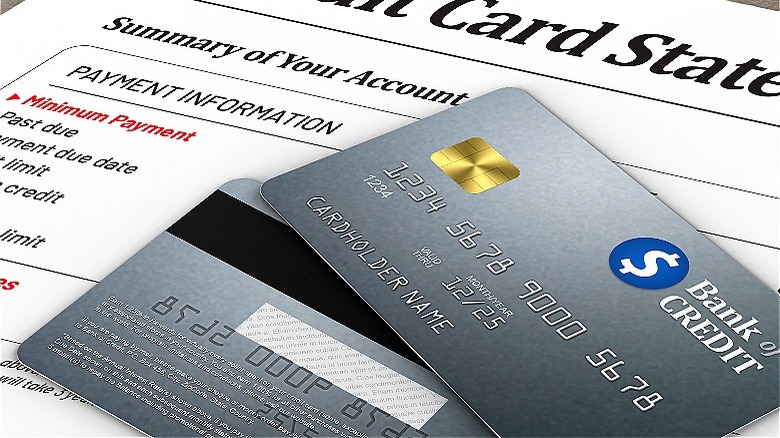5 Key Things To Know Before Applying For A Student Credit Card
Thinking about getting a credit card now that you're in college? As a student, chances are you get quite a lot of credit card offers. From seeing student cards advertised on campus to getting offers or promotions from your bank and/or credit card companies by mail or in your social feeds, there are certainly plenty of opportunities for you to apply for a revolving credit account.
Once you have your own bank account and a debit card, it might seem like adding a credit card to your wallet is the next step on your path to adulthood and financial independence. That can be true, but credit cards can also provide a path to debt. Getting a credit card as a student can be beneficial in several ways, but it's not without risk. Having your own credit card is a big responsibility, and the way you use one now can impact your personal finances for many years to come. Make sure you know these five things before you move forward with opening a credit card account in college.
1. Credit cards can help establish a credit history
Opening a credit card account while you're a student can be a good way to start establishing a credit history, which is something that's important to have. Sure, you probably already have a bank account with a debit card you can use for your everyday purchases, but a debit card isn't the same as a credit card. Using a debit card doesn't actually build a person's credit history, but using a credit card does. Building a solid credit history when you're young can help set you up for a successful transition to becoming financially independent.
With the exception of student loans, it's difficult to borrow money to finance any kind of purchase without a credit history. It can also be challenging to rent an apartment or get utilities turned on in your name if you don't have an established credit history. That's because landlords prefer tenants who have a track record of paying their bills on time, as do utility providers. It's not at all unusual for a property manager and utilities to pull a person's credit report before entering a rental agreement or providing service. Without a credit history, you could be denied or be required to have a cosigner.
2. You'll need to manage your card responsibly
As you can see, establishing a credit history while you are in school can definitely be a good thing; however, only if the track record you build for yourself is a positive one. The only thing that'll prove an even bigger barrier to borrowing money, renting an apartment, and/or getting utilities in your name than not having a credit history is having a bad credit history. If you're going to get a new credit card while a student, it's important to commit to using it responsibly and building a positive credit score.
When you get a credit card, it can be tempting to treat yourself to some luxury purchases beyond a typical student budget, but that is a slippery slope to getting into too much debt and establishing a negative credit history. Responsible credit card usage involves keeping a low balance, paying your bill on time every single month, and avoiding things that'll tank your credit score. The effort you put into establishing a positive credit history at this point in your life will serve you well long into the future.
3. Credit card interest can add up quickly
When you make purchases on your credit card and carry a balance from month to month, the cost of the time isn't the only amount you will end up paying for. According to WalletHub, the average credit card interest rate exceeded 22% in the last quarter of 2023. That's a lot of interest, and it's an average amount, not a maximum.
It's not unusual for student credit cards to have an interest rate that's even higher than the national average, as credit card issuers usually assign interest rates based on the borrower's credit history. In early 2024, LendingTree reported the annual percentage rate for student credit cards ranged from a minimum of 19.56% to a maximum of a whopping 27.85%.
Beyond being aware of how extremely high credit card interest rates can be, it's also important to know that credit card companies compound interest daily. That means interest will be added to your account each day, based on the previous day's balance.
4. Credit cards and fraud protection
In today's world of online shopping and pay-at-the-pump fuel, it's hard to get by without having at least some form of plastic or payment. Unfortunately though with so many people making purchases electronically, digital fraud is at an all-time high. One major advantage of getting a credit card while you're a student is that this type of account offers better fraud protection than a debit card. When you have a credit card, you'll be able to reconsider using your credit card for online shopping and think twice before using your debit card to pay for gas.
Most credit card issuers don't hold cardholders responsible for charges that are determined to be fraudulent and fraudulent charges don't impact your access to your credit limit. A debit card is linked directly to your checking account, so any fraudster who gets your digits could quickly drain your account and leave you with nothing. Bank accounts do have some level of fraud protection, but it's not always zero-liability and it takes time to investigate fraud. Your account balance will remain affected through the dispute process, which can take up to 60 days. This can keep you from being able to meet your financial obligations over an extended period of time.
5. Credit card debt problems aren't uncommon
Now that you know about how high credit card interest can be and that charges are compounded daily, it should be fairly easy to see how credit card usage can quickly lead to a mountain of debt. If you charge a credit card up and only pay the minimum required each month, you could quickly find yourself in a seemingly never-ending cycle of debt, making payments that do nothing but slightly offset interest that is constantly added back.
Fortunately, student credit cards typically have a fairly low spending limit, usually ranging from $500 to $1,000. However, even those small amounts can lead to a lot of debt if you don't quickly pay down the balance. And, once you start developing a history of on-time payments, chances are that you'll start getting offered credit limit increases and additional revolving credit accounts. It can be tempting to say yes to these offers, but they can lead to more and more debt and consequently do more and more damage to your credit history if you don't use them wisely.
Your credit score isn't just based on whether you make payments on time. Your credit utilization ratio, which is a percentage based on your total credit card balance by the total of your credit limit, also plays an important role. If you carry a balance close to your credit limit, this will negatively impact your credit history.





